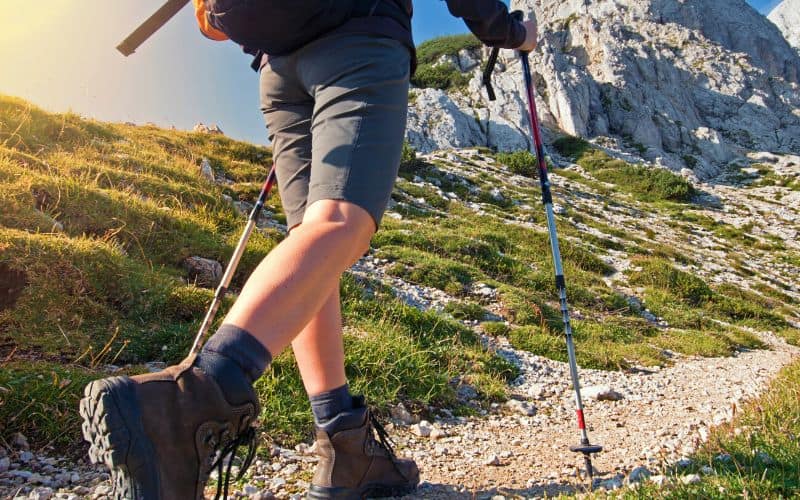Exploring the great outdoors by yourself is one of the most memorable and rejuvenating ways you can spend your time.
If anything is bothering you, a solo hike provides the necessary distance to contemplate. If something grabs your attention, no one is holding you back from examining it. Want to eat? No need to walk one more mile – you can do so whenever!
However, solo hiking doesn’t mean you’ll be by yourself all of the time. With much solitude comes the chance to engage with fellow hikers whenever you feel like it. Not having a hiking partner forces you out of your comfort zone. It is, all told, a win-win!
There are, however, a few extra precautions that need to be taken and you should be aware of the pros and cons of solo hiking before jumping in. To learn more about these, read on!
Table of Contents
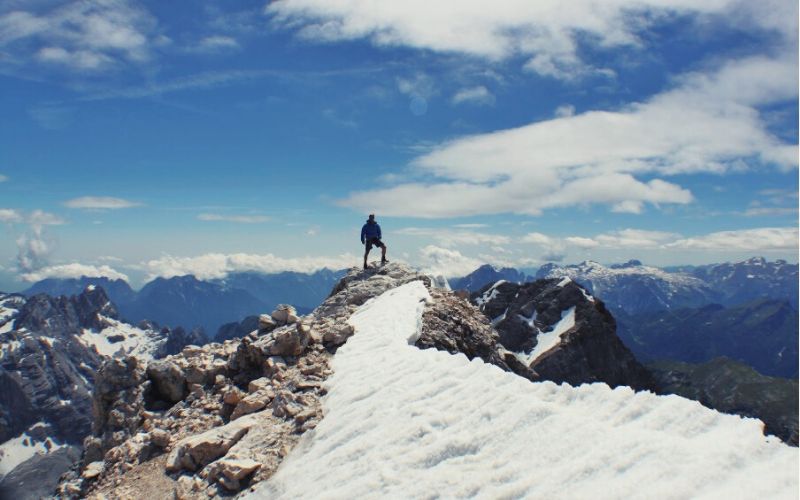
Solo Hiking: The Benefits
1. Contemplate, Process, and Muse
Solo travel is an incredible time to process your emotions and thoughts, especially on quiet hiking trails. There’s no one to distract you. In this great big landscape, your thoughts can roam free and without interruption.
This may sound daunting, but the simple act of walking allows you to control the speed at which your thoughts move. Placing one foot in front of the other is like setting a metronome for your thoughts. You can interact with them more deeply.
Let’s not forget, hiking is physically demanding. By allocating energy toward this physical exertion, you tackle only the important things that are bothering you. This is key to self-discovery and growth. By tackling the root of the problem, rather than all of the extra bits and bobs that add clout, you’re able to process things in a more logical way.
Contemplating doesn’t have to be so deep, either. Alone time gives you the ability to simply muse, and being in the wild alone helps you ground yourself in the here and now.
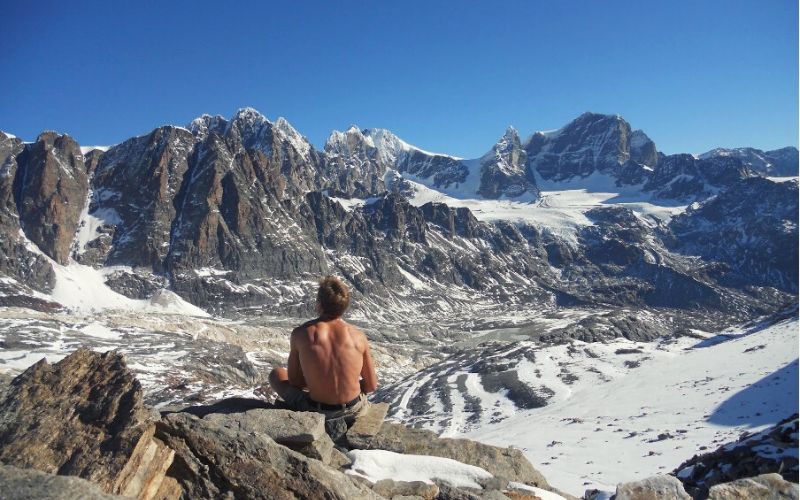
2. Finding a Camping Spot is Easier
One of the main benefits of solo traveling is that it’s much easier to find a place to sleep at night. Groups often have to book sites in advance, whereas most campsites, huts, and other accommodations will usually be able to find room for one more.
If you only have to pitch a small tent, campsites will find a small site to accommodate you. The same goes for a hostel, bunkhouse, or hotel. Even if you haven’t booked in advance, the odds of finding a single bed are much higher than finding a few beds.
3. Write in Your Journal
A journal and a pen weigh next to nothing, yet the impact of writing about your hiking trip is invaluable. Whether it’s when you’re nuzzled in your sleeping bag or mid-step on the trail when a thought pops into your head, journaling is a great trail practice.
It’s hard to find the time and silence to journal when you’re with other hikers, but alone, you have the freedom to pen away as and when you wish. Of course, you might be too tired to write any more than a few lines down, but these short remarks are often the most memorable.
How did you feel today? Who did you meet? Did you feel a certain way? When looking back on your trip, the words you’ve written will resurrect moments and feelings you forgot about!
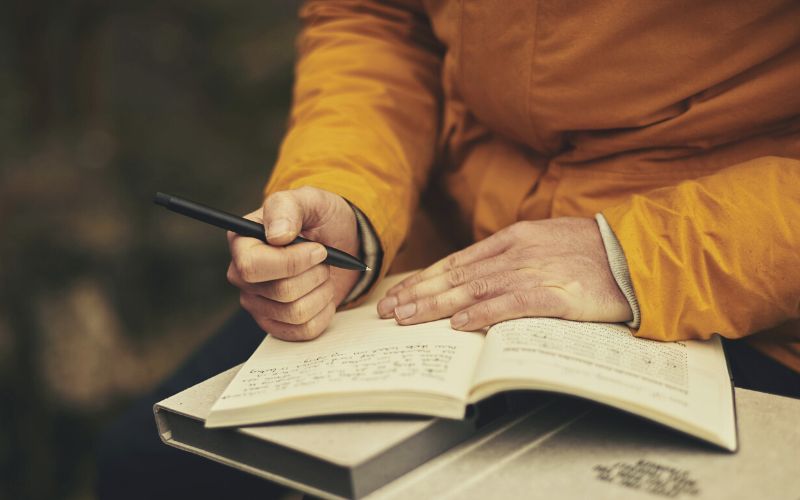
4. Read, Read, Read
Similar to journaling, when you’re on a solo hike, you’re spending much less time talking to others. If you’re a reader, there’s nothing better than long, uninterrupted periods spent with your nose in a good book.
From outdoor skills guides to mystery novels, people bring a large array of different books with them on their backpacking trips. Depending on how long you’ll be hiking for, we recommend bringing a collection of poetry or short stories.
Poems are like small, moveable fragments. A few lines can really change your outlook on a certain landscape or how you’re currently feeling. Short stories, on the other hand, are a great way of interacting with other narratives without the commitment of a novel.
Even if you never cross a fellow hiker, you can engage with different worlds and stories and enjoy another form of companionship.
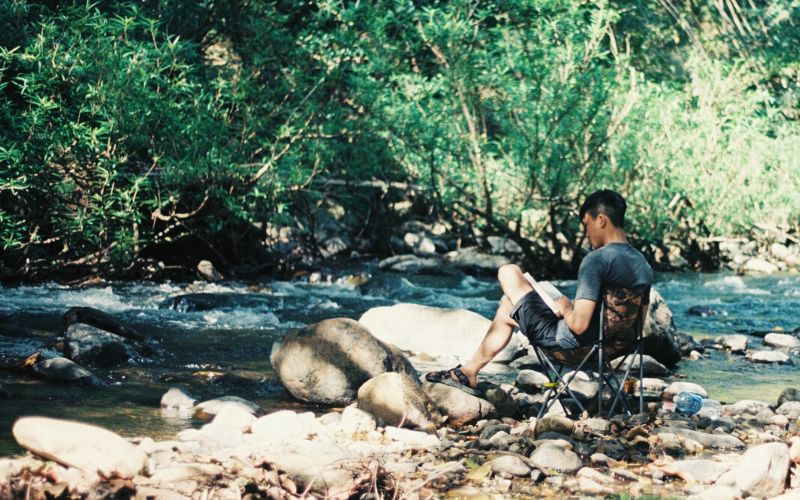
5. Silence: Be One with Nature
National parks can either be largely overcrowded places or some of the most isolated places in the world. Solo hikes in these isolated valleys, coastal areas, or mountainous regions are magical.
Hiking with others can often feel more like a social affair. However, when you’re traveling solo and there are no voices around, you hear the birds, the blades of grass and trees swaying, the sea crashing, or avalanches tumbling down mountains.
There comes a moment in all solo hikers’ journeys where, after huffing and puffing and sweating, they’ll look up and suddenly be engulfed by the beauty around them. Epiphany or not, you’ll be taken aback by the magnitude of these places.
It can be hard to find quiet trails in summer. As such, the prime time for communing with nature on your hikes is the shoulder season or winter.
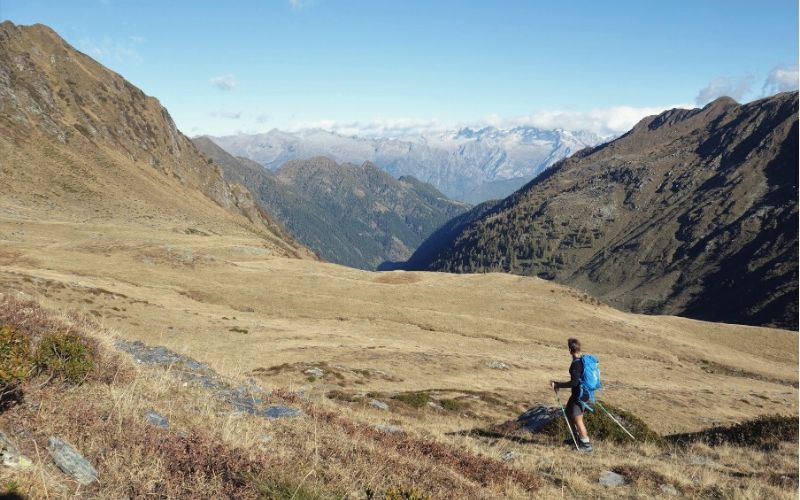
6. Move at Your Own Pace
If you don’t want to depend on other people’s schedules and hiking speeds, then hike solo. You can wake up, stop and eat, and call it a day whenever you want.
There’s no right or wrong way to hike. If you’re looking to beat a record, hiking alone allows you the freedom of moving as fast as you want without waiting. And if you’re more tortoise than hare, then you can plod along at your own pace without feeling like you’re holding people up. Chasing after hikers isn’t fun.
Even if you’re on big group hikes, deciding to hike alone for the day can allow you to decompress and immerse yourself in the landscape.
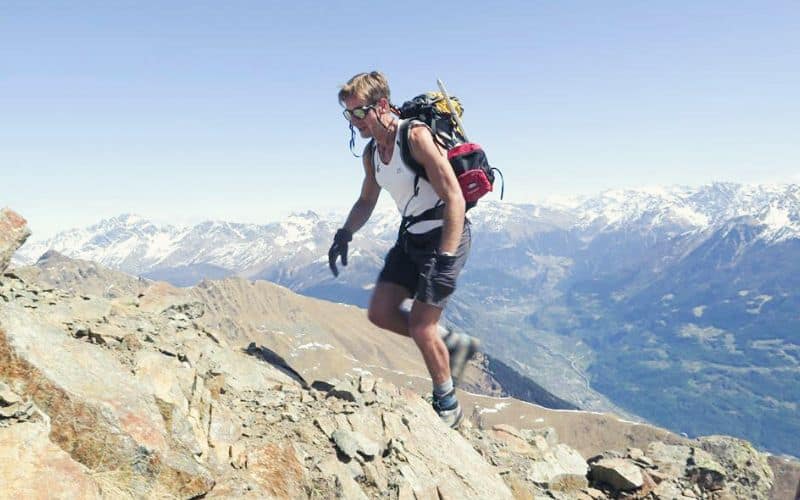
7. Self-Reliance Builds Physical and Mental Strength
Whether on shorter hikes or long hikes, if you decide to hike alone, slackpacking ain’t an option – you have to carry all your own gear. This may seem daunting when you start hiking, but a more experienced hiker can boast about how great it feels to carry everything you need on your back – alone.
Once you’re off the trail, too, and have to hike without a backpack, you’ll suddenly be missing it. Trust us, it’s a real thing!
It isn’t easy to be self-reliant, but the feeling of overcoming such a feat is one of the biggest transferable lessons to life in general from solo hiking. It builds confidence, self-esteem, self-sufficiency, resilience, and mental toughness in the face of challenges.
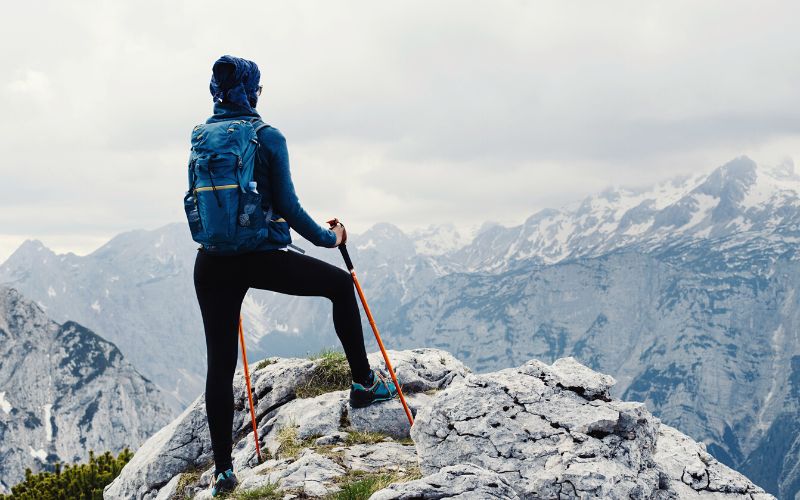
8. Become Your Own Best Friend
A great joy of solo hiking is not only finding yourself and processing your thoughts but becoming your own best friend. Hiking by yourself doesn’t always have to be serious and deep. After all, you’re outside to have fun!
Whether it’s on longer hikes or day hikes, the only person you’re spending time with is yourself, so it’s a good time to get to know yourself a little better and indulge those sides of you that only rarely come out in the company of others.
On your solo hike, you can dance, jump, laugh, yell and sing whenever you want. It’s like dancing in your kitchen or on your bed, but now amidst the natural world. If you’re shy around others, well, there’s no one here to judge you!
Hiking Solo: The Drawbacks
1. Solo Hiking Can Be Lonely
Despite the solitude, the immersion in nature, and the ability to meet truly amazing hikers, sometimes all you want is a hiking buddy to enjoy the small moments with. Solo hiking can be a double-edged sword: you’re overjoyed by the beauty, but it reminds you of someone who isn’t there.
In the words of Christopher McCandless: “happiness is only real when shared.”
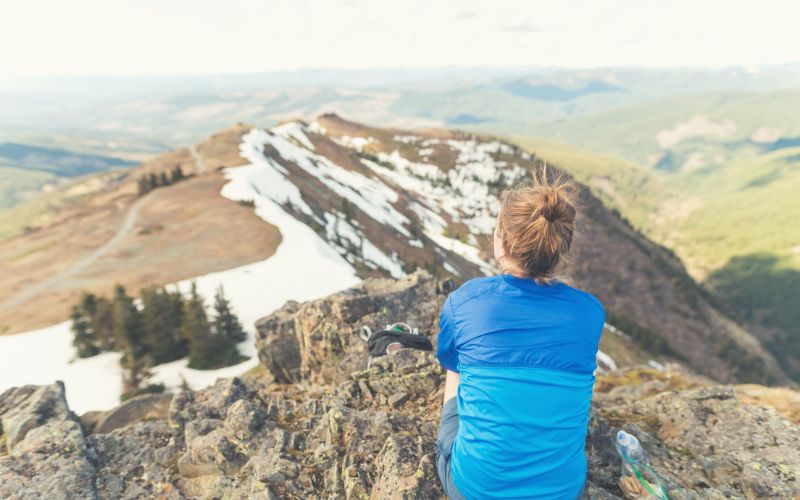
2. Emergency
This might be the most significant drawback of hitting the trails alone, especially in the backcountry or if the trail ahead is about to get real gnarly.
While burns, cuts, and minor sprains can often be treated and dealt with on the spot, dealing with a seriously sprained ankle, broken leg, or life-threatening injury is much more difficult when you’re on your lonesome.
While you might be able to rely on the traffic of more popular trails to get you help quickly, sometimes, you might be stranded out there for hours.
Before setting off, be prepared. Check the weather forecast and have your map, compass, headlamp, emergency bivy bag, first aid skills and kit, whistle, bear spray, extra clothing, food, and water. Know the whistle and headlamp distress signals.
If you do not have a phone reception, use SMS. It requires less signal than phone calls. Prior to leaving, we also recommend registering with emergency SMS services. To be extra careful, we recommend investing in a GPS unit with two-way SOS messaging.
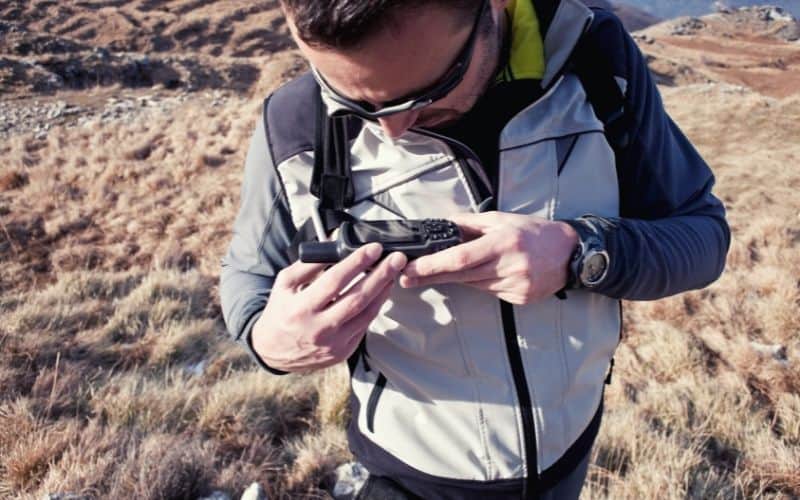
When you return to city life and people ask you about your trip, it’s hard to convey the sheer magnitude, joy, and experience of this ‘perfect hiking trail’ you just completed. Photos don’t do it justice. Words don’t adequately describe your emotions. Many small things happen on solo hikes that no one, except for you, can understand.
Every trail journey is unique. Take the Appalachian Trail for example. Even if you walked it at the same time and at the same speed as someone else, you’d still both have widely different experiences, and you wouldn’t fully comprehend the other’s journey.
4. No Splitting of Tasks
Let’s face it. Sometimes, when you find your campsite, you want to set up and eat and go to sleep – all at the same time. Unfortunately, you only have two hands and this isn’t possible.
Hiking with someone else can greatly reduce the time spent doing tasks. While you boil water for dinner, your buddy can pitch the tent. While you cook food, they can blow up the air mattresses. Soon, you’ll be eating in your sleeping bag.
When you’re alone, these steps take far more time.
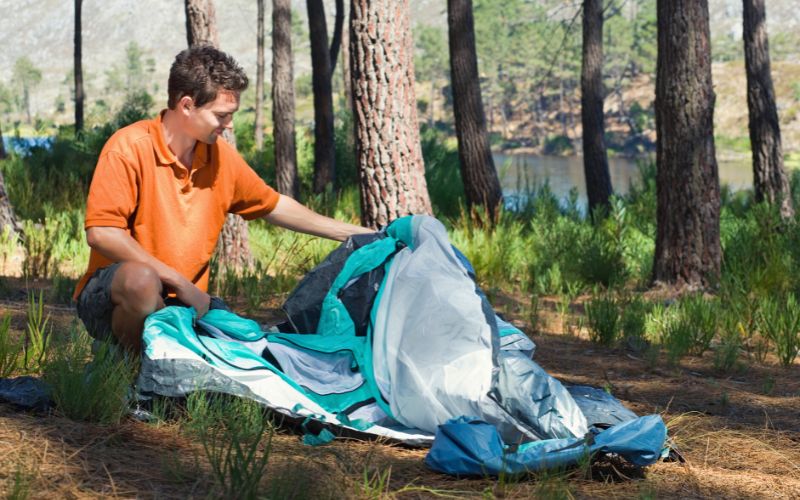
Solo Hiking Safety Tips
1. Tell Someone Where You’re Going
Before you embark on a solo backpacking trip, inform someone where you are going to be, for how long, and when you anticipate finishing the trail. Even if you’re walking one of the more popular trails, establish checkpoints where you’ll contact them to provide updates. If your trailhead has a book to sign, do so.
2. Be Bear Aware
If you’re heading into bear country, bring bear spray and know what to do if you encounter a bear. Make noise when you walk, hang your bear food or keep it in a bear canister (do not keep it in your tent), and never approach them.
One of the main avoidance tactics in bear country is talking loudly to warn bears of your presence. Because you won’t have a buddy with you, you’ll just have to talk to yourself!
Although encounters are less frequent, be aware of mountain lions and know what to do if you run into one.
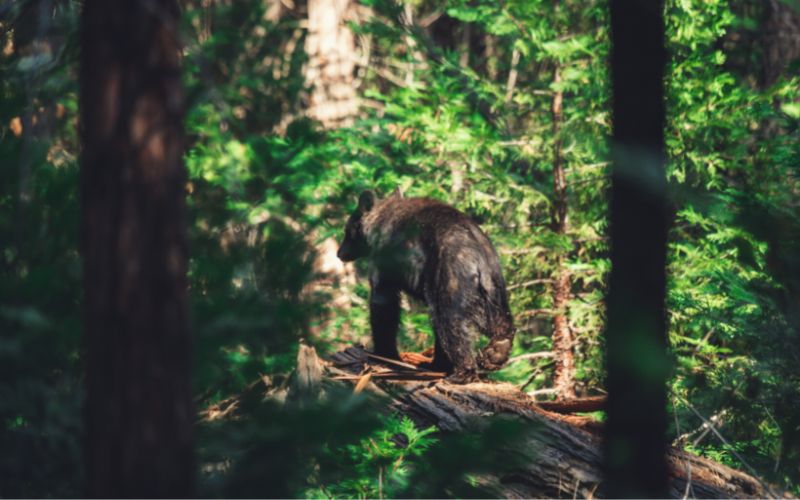
3. Ten Essentials
This list may slightly differ based on where you’re from, but these ten ‘systems’ are widely recognized as essential for any hike – whether they’re group or solo hikes. Developed in the 1930s, this list has evolved from individual items to systems.
Although having these items is important, more important is knowing how to use them!
- Navigation (map, compass, GPS, beacon)
- Knife
- Sun protection (sunglasses, hat, cream)
- Extra clothing (especially in the winter!)
- Headlamp (batteries, too)
- First Aid Kit
- Fire (matches, lighter)
- Food
- Shelter (emergency blanket)
- Water
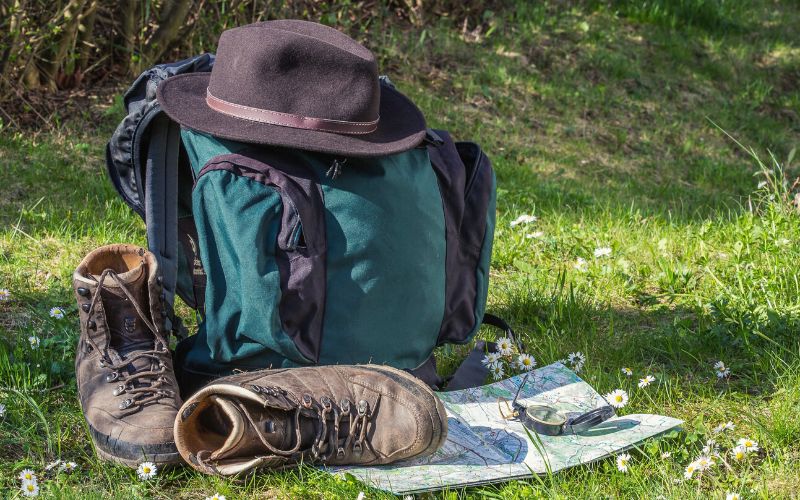
Hiking Alone as a Woman: Other Safety Considerations for Female Hikers
Unfortunately, every year there are stories of female solo hikers who get harmed. These occurrences are extremely rare, but they are the source of fear and discomfort for many a female hiker.
If you are a female solo hiker, like our other tips above, let someone know the details of your hike, and plan to communicate with them at various checkpoints. Have a well-charged phone and leave a note in your car saying you are out on a hike.
Ensure you’ve packed the ten essentials and enough food in case of an emergency, as well as a whistle (know the distress signals!). If it helps you feel safer and it is legal to carry, you can bring a can of pepper spray, too. If not, bear spray is a good option.
If this is your first solo hike, start on a popular trail to get accustomed to walking alone. This will both help you boost your confidence for tackling solo hikes and give you some experience in dealing with others on the trails.
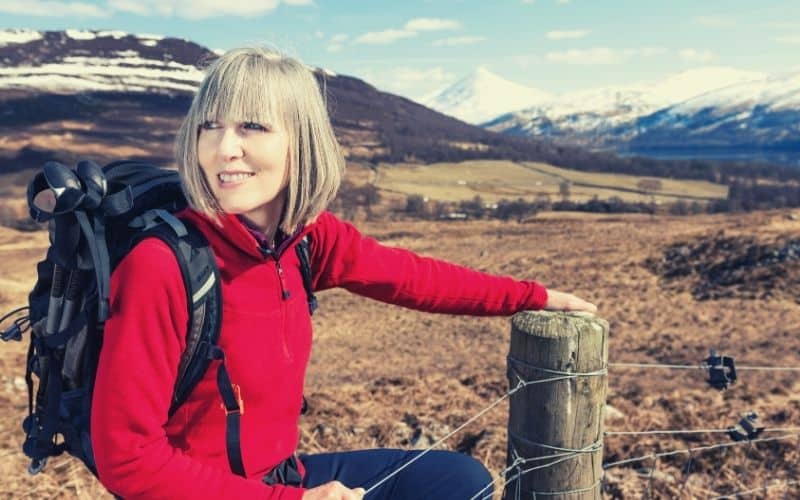
While walking, if you come across a suspicious hiker, look them in the eyes and act confidently. While some people are shy or don’t want to speak, you can tell if someone is purposely ignoring you or acting weird. If the hiker starts speaking to you and you are uncomfortable, do not reveal information. Keep acting confident, looking them in the eyes, and tell them your group is behind.
Time To Go Hiking!
Whether you haven’t done much hiking or are a trail-blazing machine, the experience of solo hiking is one of life’s greatest joys. There are so many benefits to a solo hike. You can make your own schedule, bask in the stillness and silence of nature, write and read . . . really, it’s just you and nature.
If you liked this article, please feel free to share it with your friends or anyone bound for a solo hike soon. Drop any questions or comments below!
